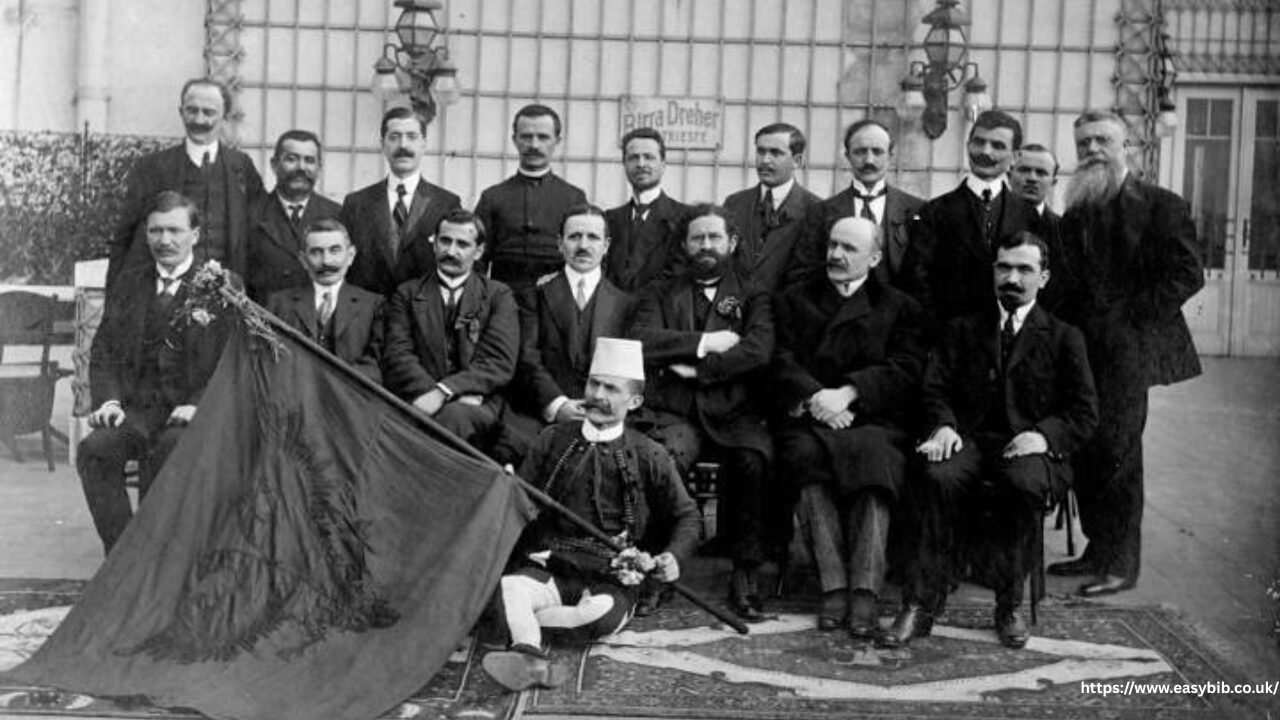How to Embrace Your Albanian-American Heritage

Celebrating your Albanian-American heritage is a vibrant journey marked by rich traditions, a strong history, and cultural pride. Whether you’re a first-generation immigrant or a descendant of earlier arrivals, connecting with your roots can be both enlightening and rewarding.
This article offers nine practical ways to reconnect with your Albanian roots, from exploring family history to learning traditional recipes
1. Explore Your Family History
Albania’s long history of migration, particularly during the Ottoman era, communist rule, and the economic collapse of the 1990s, has shaped many diaspora stories. Ask your grandparents or older relatives about their childhoods, family traditions, or reasons for emigrating. Capture their stories through recorded audio or written interviews to preserve them for future generations.
Genealogy websites and immigration records can offer clues, but oral history is compelling in Albanian culture, where traditions were often passed down verbally. Identifying your family’s region, such as Shkodër in the north or Gjirokastër in the south, can also reveal unique dialects and customs.
2. Learn the Albanian Language
Albanian (Shqip) is central to cultural identity, yet it’s often lost by second- and third-generation Albanian-Americans. There are two main dialects—Gheg and Tosk—but both connect you to the same national legacy.
Apps like Duolingo and LingQ offer beginner lessons, while YouTube channels and Instagram creators provide vocabulary tips and pronunciation practice. Community centres and Albanian churches may host weekend language schools for children and adults alike. Also, Shiko TV Shqip is always a good idea to brush up on your Albanian. Even learning basic phrases can foster deeper connections with family and traditions.
3. Celebrate Traditional Festivals
Participating in Albanian holidays, such as Dita e Verës (14 March) and Flag Day (28 November), connects you with deeply rooted traditions. In Elbasan, Dita e Verës marks the return of spring and is celebrated with ballokume (a traditional corn cookie) and bonfires. Flag Day commemorates Albania’s independence from the Ottoman Empire in 1912.
Diaspora communities often organise parades, concerts, and folk dance performances around these dates. Seek out events hosted by local Albanian-American organisations or consulates.
4. Explore Albanian Cuisine
Food bridges generations. You can learn to cook traditional dishes like byrek (savoury pie), tavë kosi (lamb baked in yoghurt), fli, and petulla. Recipes vary by region—northern dishes often include more dairy and meat, while southern cuisine draws from Mediterranean influences.
If you’re unsure about your cooking skills, host a family cooking day or attend a local food festival. Many classic recipes are available on YouTube or in diaspora-published cookbooks, which you can get from Amazon.
5. Watch Albanian TV and Media
A practical and engaging way to stay connected with modern Albanian culture is through IPTV services, such as TVALB. Designed for Albanians abroad, TVALB streams over 250 Albanian channels, including shows, news, sports, and dramas.
You can follow popular series like Big Brother VIP Albania or tune in to Klan TV, RTSH, and Tring for local perspectives. With multi-device support and the TV shqip live app available on smart TVs, phones, and tablets, it’s easy to watch from anywhere. Watching regularly helps you stay current on Albanian language, humour, and social issues, even if you’re miles away.
6. Engage with Cultural Organisations
Groups like the Albanian American National Organisation (AANO), Vatra, or local heritage centres regularly organise conferences, picnics, lectures, and youth events. These gatherings create opportunities for networking and cultural learning while promoting Albanian values such as hospitality, family unity, and community pride.
Getting involved also allows you to meet others with similar backgrounds and actively contribute to the preservation of Albanian culture in North America.
7. Appreciate Traditional Arts and Crafts
Traditional Albanian arts, including embroidery, costume design, and handcrafted items, reflect the country’s rich heritage. Each region has its unique patterns, techniques, and cultural expressions that have been passed down through generations.
Explore exhibits by Albanian cultural groups or try learning a traditional craft at home. Engaging with these forms of art can help you gain a deeper understanding of regional identities and preserve ancestral traditions.
8. Visit Albania
Quite obvious, but nothing beats the experience of walking the same streets your ancestors once did. Explore UNESCO-listed cities like Berat or Gjirokastër, enjoy the Adriatic coast, or hike the Accursed Mountains. Visit villages to see churches and graveyards.
Organisations like the Albanian Roots diaspora group often organise tours. Visiting not only brings clarity to your history, but it also strengthens emotional and cultural ties.
9. Share Your Heritage
Invite friends to try Albanian food, attend a flag day celebration, or learn a traditional dance like the valle. Sharing your culture helps normalise and preserve it, especially in multicultural settings.
Start small: bring byrek to a potluck, share a traditional proverb on social media, or teach your children an Albanian lullaby or saying. These actions affirm your cultural identity and encourage intergenerational transmission.
READ MORE
Final Thoughts
Embracing your Albanian-American legacy is about staying curious, involved, and proud. Whether you’re perfecting your grandmother’s tavë kosi, learning how to pronounce “Gëzuar!”, or watching the latest episode of a Tirana-based drama, every step brings you closer to your roots.
